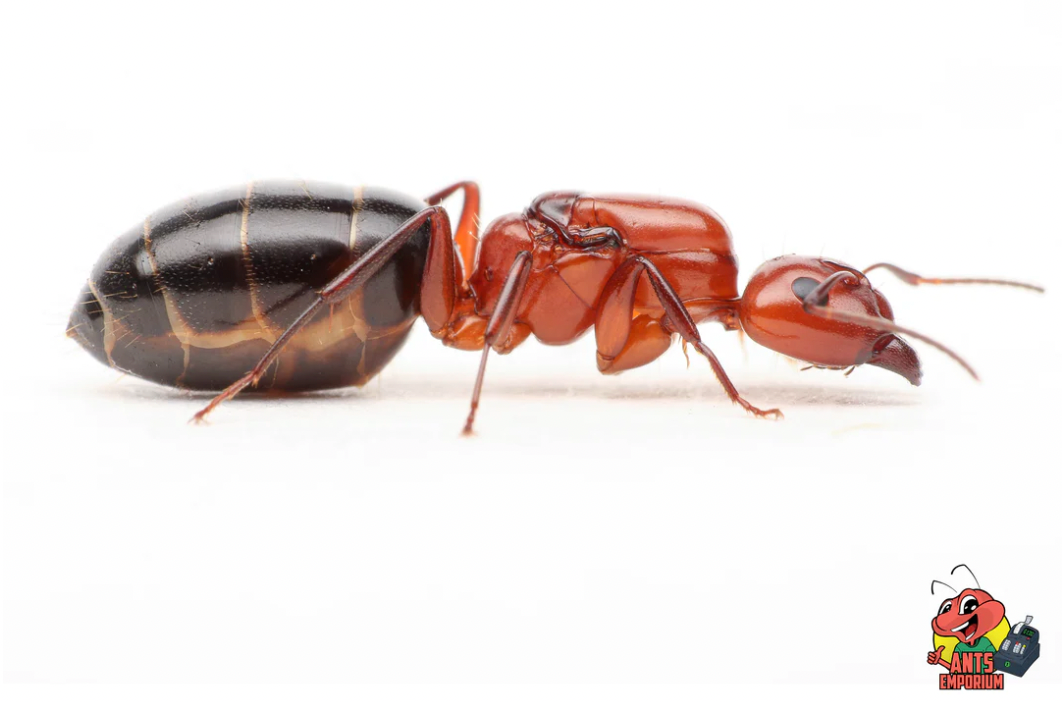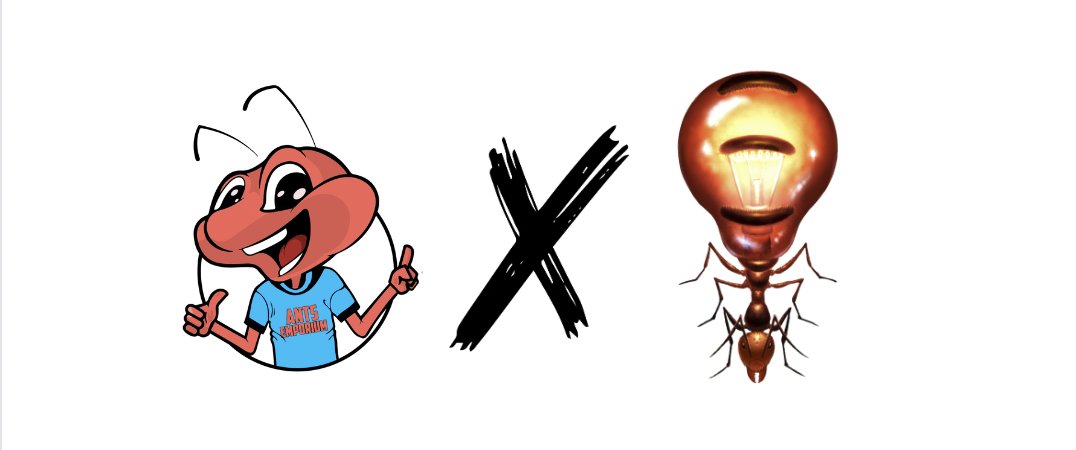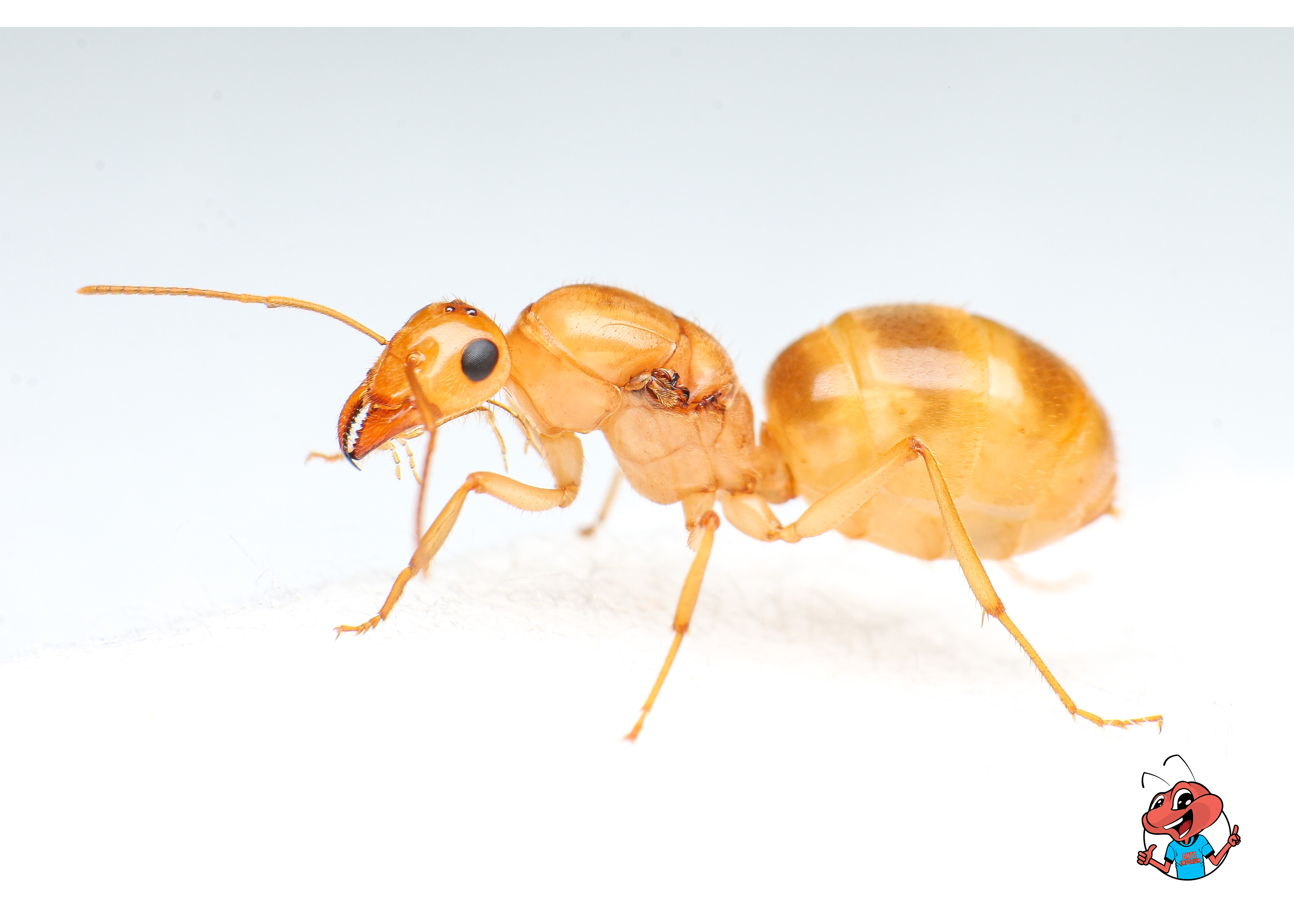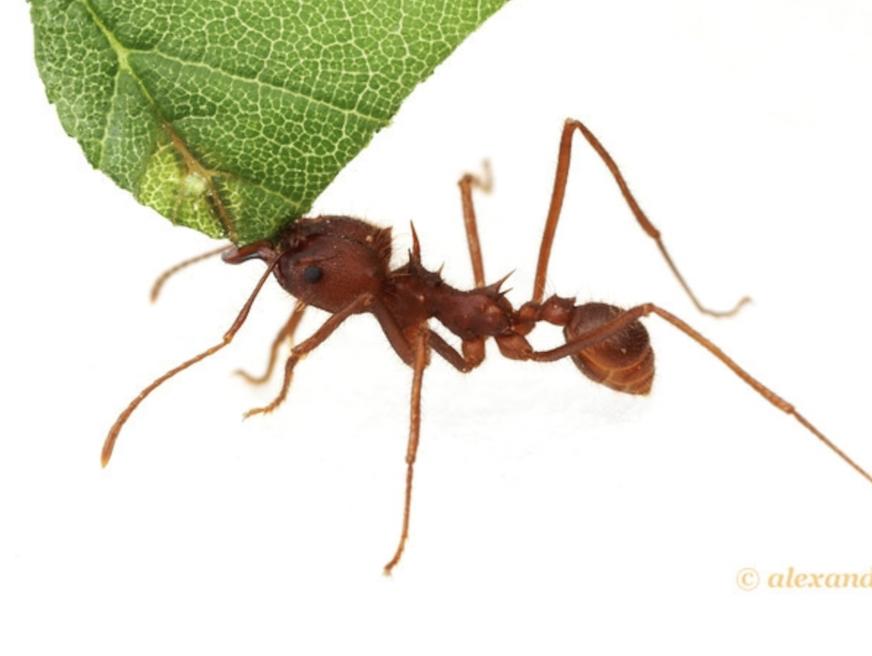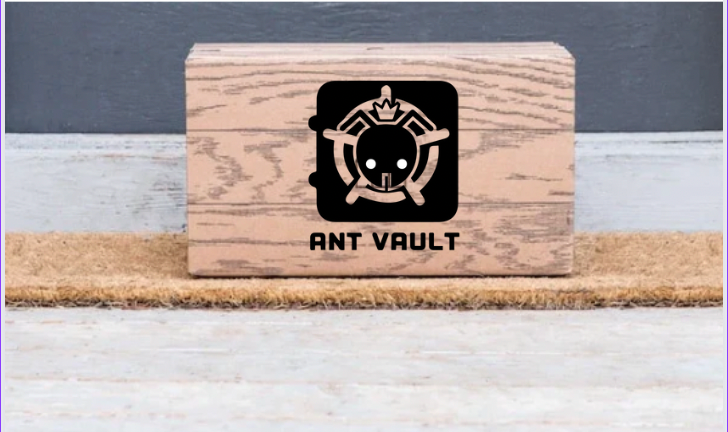Myrmecocystus mendax (Bicolored Honeypot Ants) Care Guide:
Myrmecocystus mendax, also known as bicolored honeypot ants, are fascinating ant species that can be kept as pets by beginners. Here is a care guide to help you take care of them:
Housing:
- A glass or acrylic formicarium with a moisture-retaining layer on the bottom is ideal.
- Place a nest area, where the queen and brood will reside, in one end and a foraging area in the other.
- Make sure the formicarium is escape-proof.
- The nest area should be kept at around 24-28°C (75-82°F) and should be kept dark.
Feeding:
- Bicolored honeypot ants require a diet rich in sugars and proteins.
- Offer them a variety of insects such as crickets, mealworms, and fruit flies.
- They also need a constant supply of sugar water or honey.
- You can also provide them with fruits such as apple, banana, and watermelon.
Humidity:
- These ants require a high level of humidity in their environment.
- Keep the moisture-retaining layer in the formicarium damp and add water as needed.
- Provide a water source, such as a test tube filled with water, in the foraging area.
Behavior:
- Bicolored honeypot ants are a polygynous species, which means they can have multiple queens in a single colony.
- They are relatively slow-moving and not very aggressive.
- The worker ants are known to store nectar in their bodies, which can swell up to the size of a grape, making them look like living honeypots.
Maintenance:
- Regularly clean the formicarium to prevent mold and bacteria growth.
- Check the water and sugar sources daily to ensure they are not contaminated or evaporated.
- Observe the ants regularly to make sure they are healthy and active.
Tips:
- Keep the formicarium away from direct sunlight and heat sources.
- Be careful not to overfeed the ants as it can lead to mold growth and other issues.
- Always wash your hands before handling the ants to prevent the transfer of harmful bacteria.
By following these guidelines and tips, you can provide a healthy and comfortable home for your bicolored honeypot ants.
